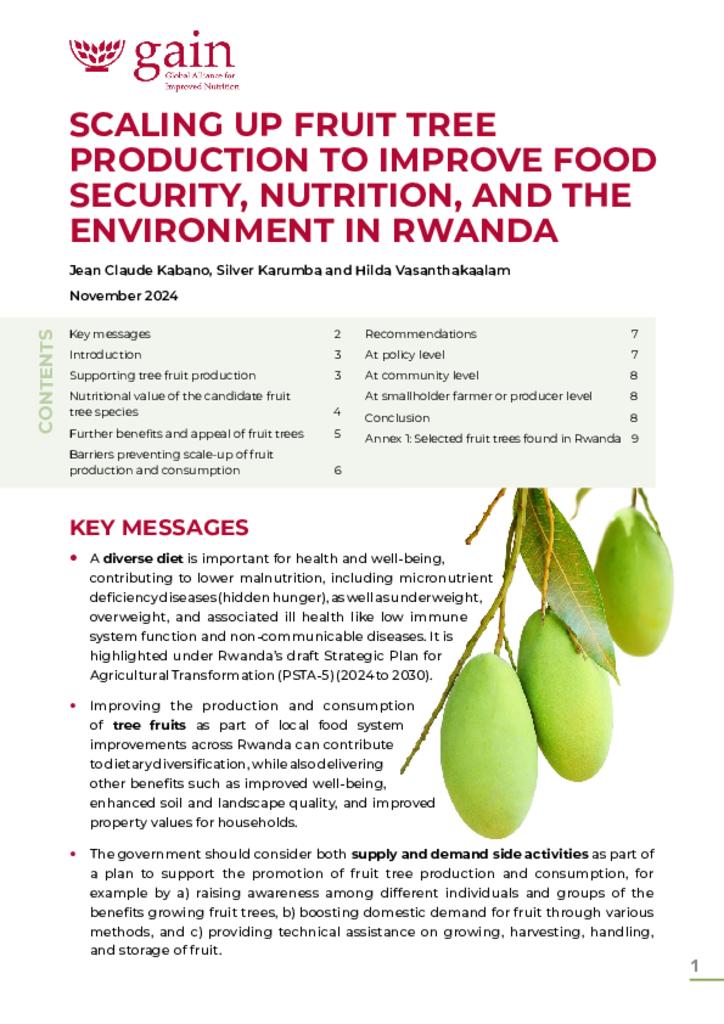A diverse diet is important for health and well-being, contributing to lower malnutrition, including micronutrient deficiency diseases (hidden hunger), as well as underweight, overweight, and associated ill health like low immune system function and non-communicable diseases. It is highlighted under Rwanda’s draft Strategic Plan for Agricultural Transformation (PSTA-5) (2024 to 2030).
Improving the production and consumption of tree fruits as part of local food system improvements across Rwanda can contribute to dietary diversification, while also delivering other benefits such as improved well-being, enhanced soil and landscape quality, and improved property values for households.
The government should consider both supply and demand side activities as part of a plan to support the promotion of fruit tree production and consumption, for example by a) raising awareness among different individuals and groups of the benefits growing fruit trees, b) boosting domestic demand for fruit through various methods, and c) providing technical assistance on growing, harvesting, handling, and storage of fruit.
